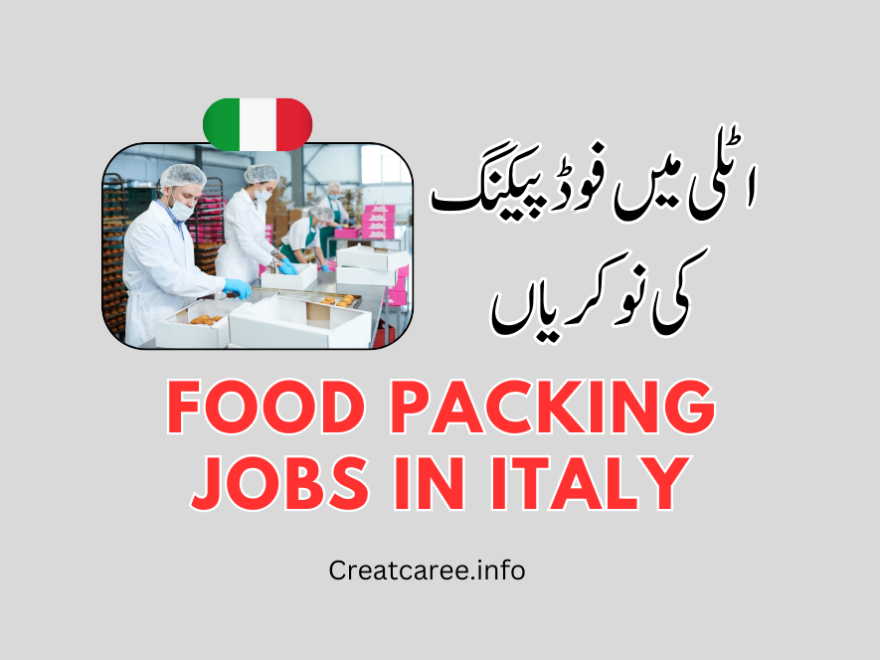Food packing jobs in Italy offer excellent opportunities for individuals looking for employment in the food production and logistics sector. These jobs are crucial for ensuring that food products are safely packed and ready for distribution. In this article, we will cover the salary expectations, educational requirements, and benefits associated with food packing jobs in Italy, along with a detailed salary table.
Thank you for reading this post, don't forget to subscribe!Job Description and Responsibilities
Food packing jobs generally involve the packaging of food products for distribution to stores, wholesalers, and other commercial buyers. Key responsibilities may include:
- Operating packaging machinery
- Sorting and organizing products
- Ensuring food quality standards are met
- Labeling and sealing packages
- Monitoring the packaging process to ensure it runs smoothly
- Adhering to health and safety regulations
Salary Expectations
The salary for food packing jobs in Italy can vary based on factors such as experience, location, and whether the role is full-time or part-time. Below is a salary breakdown based on various experience levels:
| Experience Level | Monthly Salary (€) | Apply Now |
|---|---|---|
| Entry-Level | 1,200 – 1,500 | Apply Here |
| Mid-Level | 1,500 – 2,000 | Apply Here |
| Experienced | 2,000 – 2,500 | Apply Here |
| Supervisor/Manager | 2,500 – 3,000 | Apply Here |
These roles can be physically demanding as they often involve standing for long periods and performing repetitive tasks. However, they are also essential for the smooth functioning of the food supply chain.
Educational Requirements
For food packing jobs in Italy, formal education requirements tend to be minimal. Most employers only require a high school diploma (or equivalent), and experience in food processing or production is a plus.
- Basic Education: High school diploma or equivalent is typically the minimum requirement.
- Skills: Manual dexterity, attention to detail, and basic machine operation skills.
- Experience: Some experience in the food or manufacturing sector can be advantageous but is not usually mandatory.
- Language: While Italian is the primary language, some employers may require basic knowledge of Italian for communication and safety compliance.
Benefits and Working Conditions
Food packing jobs in Italy often come with several benefits, though these can vary depending on the employer:
- Health Insurance: Most employers provide health coverage or contribute to Italy’s national healthcare system.
- Paid Leave: Full-time employees typically enjoy paid vacation days, public holidays, and sick leave.
- Job Stability: Many positions offer long-term stability, particularly in larger food production companies.
- Shift Flexibility: Depending on the company, there may be options for shift work, allowing employees to have more flexible schedules.
- Training: Some companies provide on-the-job training for employees, especially those with no prior experience.
- Overtime Pay: Overtime is typically paid at a higher rate (often 1.5x or 2x the standard hourly wage).
Working Hours
Food packing jobs typically operate on a shift system. Common shift patterns include:
- Morning shift: 7:00 AM to 3:00 PM
- Afternoon shift: 3:00 PM to 11:00 PM
- Night shift: 11:00 PM to 7:00 AM
Some employers may also offer weekend or split shifts, particularly in larger production facilities.
Job Opportunities and Growth
The food industry in Italy is a significant sector, providing numerous job opportunities. Regions with a strong agricultural or food production base, such as Emilia-Romagna, Veneto, and Lombardy, offer the highest number of food packing job vacancies.
There are also opportunities for career advancement, especially if you acquire additional skills or experience. With seniority, workers can progress to roles such as packing supervisor or manager.
Key Points to Consider Before Applying
- Location: Jobs in more urban areas or regions with significant food production industries may offer higher salaries but come with a higher cost of living.
- Physical Demands: The job can be physically demanding, involving long hours of standing, repetitive motions, and occasionally lifting heavy packages.
- Language Proficiency: While many employers hire non-Italian speakers, having a basic command of Italian will be beneficial for communication and safety reasons.
Conclusion
Food packing jobs in Italy can be a good entry point for those seeking employment in the food industry. The jobs offer competitive salaries, with opportunities for career growth. While formal education requirements are minimal, experience and a strong work ethic are crucial for success in this sector. The added benefits of health insurance, paid leave, and training further enhance the attractiveness of these roles.
